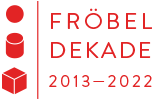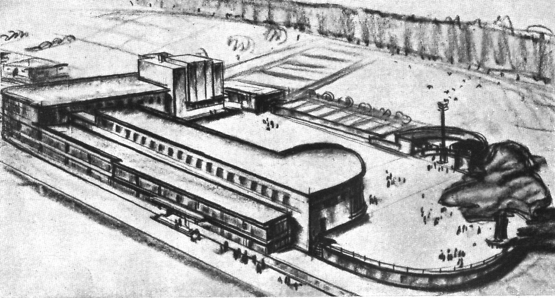Fröbel and Modernity
Friedrich Fröbel lived and worked in a time of great social upheaval. With the beginning of the second half of the 19th century, a development began which brought many generally valid norms and laws into question, and created a new world and a concept of humanity that was taken up in the fields of art, architecture, music and literature – the “Outbreak of Modernity”.
Fröbel was an inspiration for the newly-devised concept of childhood education, which had its start at this time under the term “Reform Pedagogy”. With the grounding of a kindergarten teachers’ training school, Fröbel was also seen as a supporter of women’s emancipation.
However, Fröbel was also active in the fields of art and architecture, with the “gifts” he developed considered sources of inspiration. Radical abstraction in painting was up until then a foreign concept, but one that was later enthusiastically embraced by artists and architects. In 1924, Walter Gropius, the former director of the Staatliche Bauhaus Weimar (Bauhaus Art School), published in the magazine “Kindergarten” plans for a Friedrich Fröbel House in Bad Liebenstein.
In 2019, the theme for the Fröbel Decade will focus on Fröbel’s achievements in the context of modernity and the impact of these beyond the boundaries of the movement. With the 200th anniversary of the Staatliche Bauhaus Weimar (grounded in 1919 by Walter Gropius), the 2019 themed year will be dedicated to the impact Fröbel’s philosophy had on art and architecture, especially his “gifts” and the mathematical aspects of his early childhood education concept.




